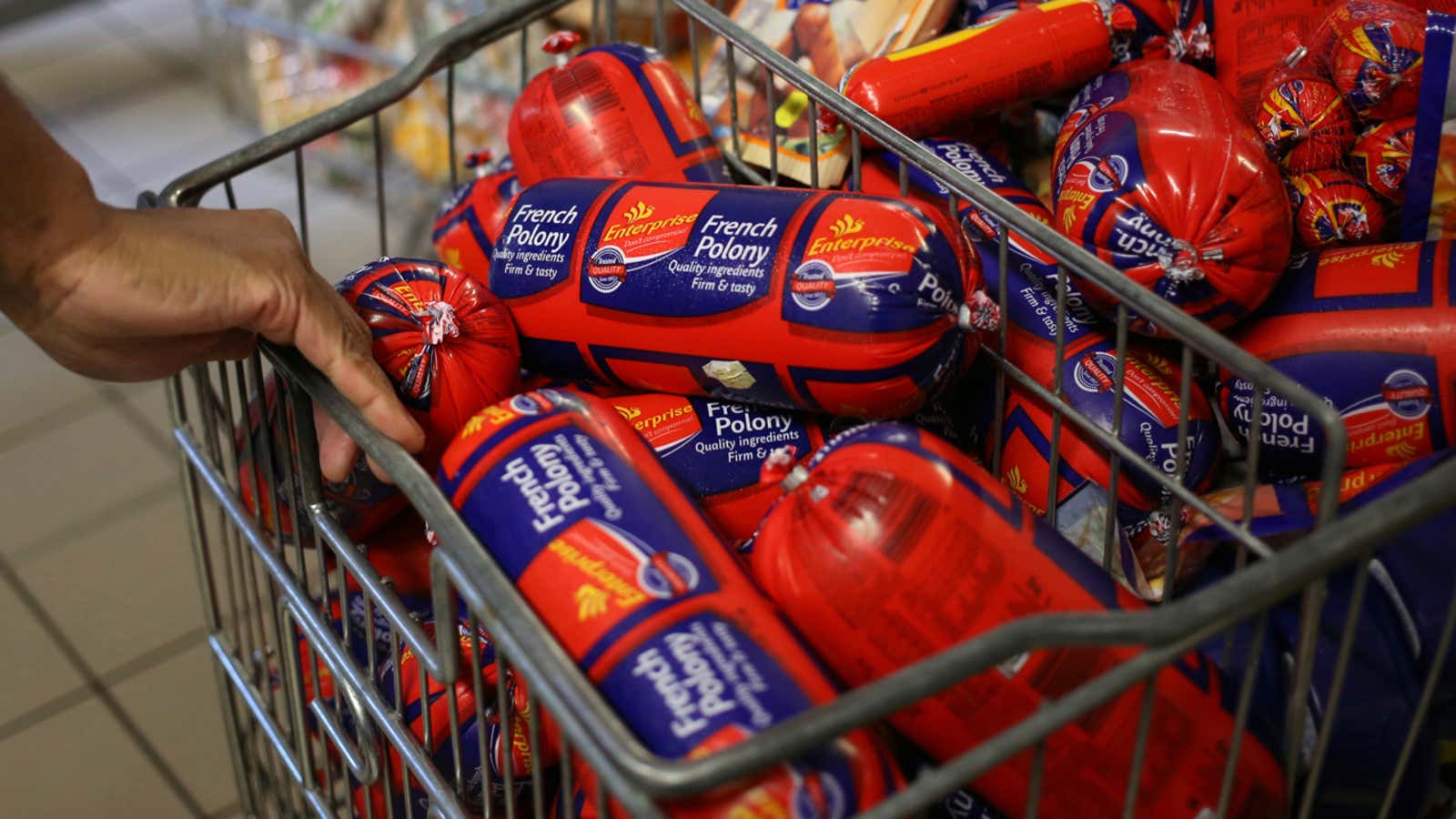The listeria outbreak in South Africa has been met with panic, memes, and bad public relations.
Traced to processed meats found in some of South Africans’ favorite sandwiches, listeriosis has killed at least 180 people in the country in the last several months with the epicenter of outbreak being linked back to a meat-processing factory owned by Tiger Brands.
This is fifth scandal Tiger Brands has faced in 11 years. However, this latest one may not be as easy to shake-off as their previous transgressions, thanks to social media. In the age of the “see-through economy,” consumers demand immediate accountability from manufacturers, says Steven Minsky, creator of the RIMS Risk Maturity Model for Enterprise Risk Management model.
“The big difference this time is the power of the see-through economy, where Tiger’s press release is drowned out by the outrage of their customers and investors on social media,” Minsky told Quartz.
Tiger Brands tried “the old playbook of PR distraction,” says Minsky, which only highlighted their lack of accountability. Minsky’s concept of the see-through economy is brought about by the ubiquity and speed of social media, allowing consumers to rapidly organize around their frustration, which is only made worse by a slow or obfuscated official response. In this information-driven economy, it takes minutes to damage a brand’s reputation.
The popularity of the implicated foods likely heightened the brand’s visibility in this scandal. Tiger Brands wasn’t the only big name dragged into this, though. Rainbow Chicken, one of the country’s largest poultry producers and a regional exporter, has largely dodged the public backlash. Woolworths, a high-end grocer, was found to produce many of its exclusive products at the same Enterprise factory.
It was Tiger Brands’ initial denial that there was a link between its factory and the listeriosis outbreak that has attracted the backlash, says Minsky, who is also CEO of the Boston-based risk management firm LogicManager. When Tiger Brands released a more considered statement, the damage had already been done.
“We acknowledge and recognise that we are dealing with a national crisis which has impacted customers, consumers and the industry,” CEO Lawrence MacDougall said on March 9. “Tiger Brands wants to be at the forefront of finding a solution.”
The scandal has highlighted Tiger Brands’ past failures, including an expensive failed attempt to enter the Nigerian market in 2010. In 2007, the company was fined 98.7 million rand ($8.3 million) for their role in a cartel that fixed the price of bread, hiking the price of a staple food. Then in 2014, the company recalled 17,000 packages of Tastic ready-to-eat rice and cook-in sauce after they were found to contain traces of carcinogens.
More recently, South Africa’s SPCA raised concerns over the conditions at an abbatoir contracted to Tiger Brands, where pigs were stunned with carbon dioxide before being slaughtered. The company dismissed (pdf) the SPCA’s attempts to lay criminal charges against them as “are neither valid, rational nor in the interest of the animals” in what is an acceptable international practice.
“This case will proceed in a predictable pattern of risk management failures,” said Minsky, starting with a class action lawsuit.
This week, South African attorney Richard Spoor teamed up with Marler Clark, the Seattle law firm specializing in foodborne outbreaks, to bring what could be the largest class action suit in South Africa’s history against Tiger Brands.
Read more: South Africa’s listeria outbreak is forcing the country to rethink its iconic national foods
